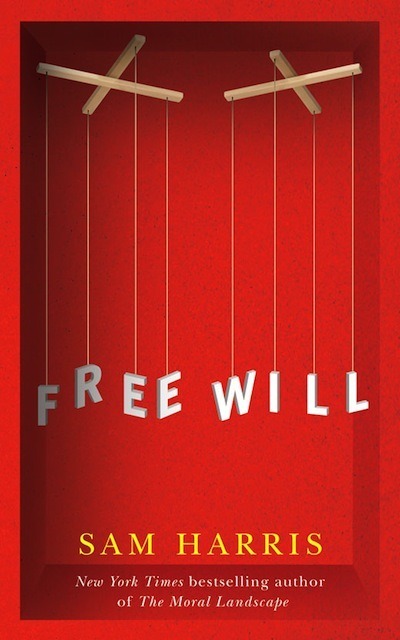
This is a slim volume by noted atheist Sam Harris that was first available on Kindle and was then released in paperback.
I have a few rather serious thoughts about it, as it presents a dreaded scenario of the type when scientific findings are odds with one's religious convictions.
Harris's position, as is suggested by the cover, is the free will is essentially a fraud. Everything anyone ever does or says has been predetermined by our subconscious mind, before our conscious mind is aware of it--and he backs this position up with hard scientific facts.
That is not to say that Harris's conclusion is not still a matter of scientific dispute. I recently spoke with an unbeliever who did not agree that free will is nonexistent. This is not necessarily an atheistic position at all, of course, though Harris happens to be an atheist. In fact, one of the most disturbing things about the non-existence of Free Will is its close proximity to Calvinistic dogma. In fact, th scenario Harris presents would fit very squarely into the tenants of Calvinism.
I once attended a congregation that was predominately Calvinist, among whom I got along well, and a pastor who once stated that Calvinism was "the only truth of God's word."
Needless to say, I disagree, at least in principle, with virtually everything in Calvinist doctrine, and this is why reading Free Will without bias was such a challenge for me. I have to say, though, that some of the things Harris says about our lack of free will have encouraging things to say for Christian worldview. One of them is that recognition of this is liable to result in a far more Christ-like response to the deviants and conformists among us. This is even, perhaps especially, true in the case of those who commit heinous crimes.
Looking at the case of a monstrous individual who has victimized an innocent person--I really don't want to discuss any actual case here(Harris himself describes one very disturbing case in The Moral Landscape), we generally are prone to cry out for terrible retribution against the perpetrator. Such feelings are difficult to do away with, and indeed I myself once held the position of "an eye for an eye." I also write fiction, and I admit to devising appropriate comeuppances for the villains of my stories on many an occasion. This attitude is rooted firmly in our desire to see justice done to evildoers, and partially in our compassion for the innocent.
But in a Christian context, taking revenge is just plain wrong. It will only lead to the further perpetuation of evil. Responding with love to vilest among us is certainly challenging, but it also happens to be Christ's command. And recognition that even the vilest are victims of their own subconscious should invariably enable us to respond in the morally correct way. Harris himself has observed something that we all must admit: that it is terribly bad luck to be born with the mind of a psychopath. Therefore, the psychopath is himself a victim, at least to that extent.
On the other hand, the whole notion of the non-existence of Free Will just isn't very palatable to me, especially from the point of view that our own choices determine, at least in part, the relationship we have with Christ. God would necessarily be unjustified in judging us, if free will did not exist at all. And getting back to the most evil among our species, Harri's position would strongly suggest that even the worst mass murderer is, at base, no more accountable for his crimes than a newborn is for inheriting a selfish nature. This would seem to negate the special moral status many of us recognize in infants and children.
For my own part, whatever the science regarding Free Will, I will attempt to live my life as though I have a choice, even if Harris's position proves correct.
No comments:
Post a Comment